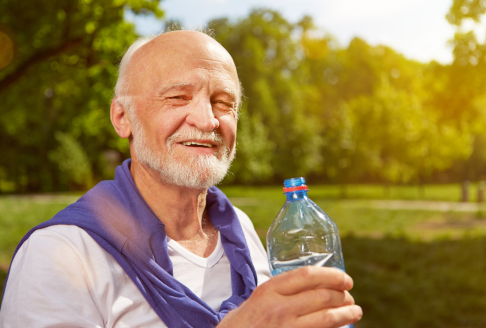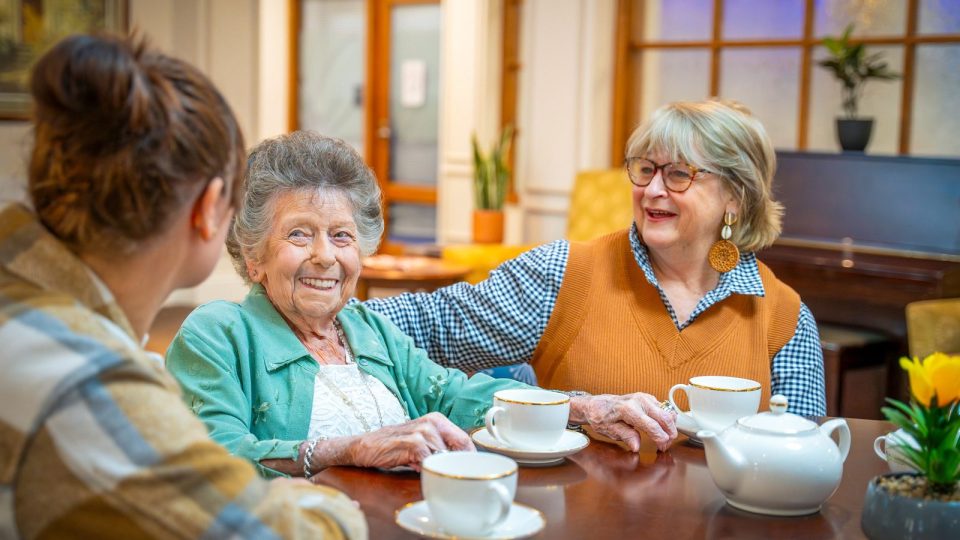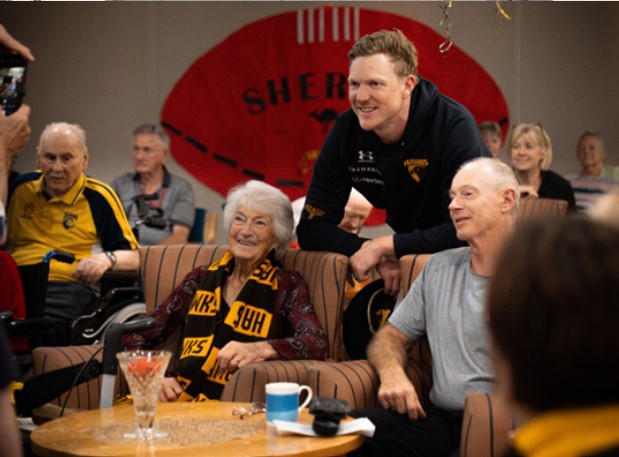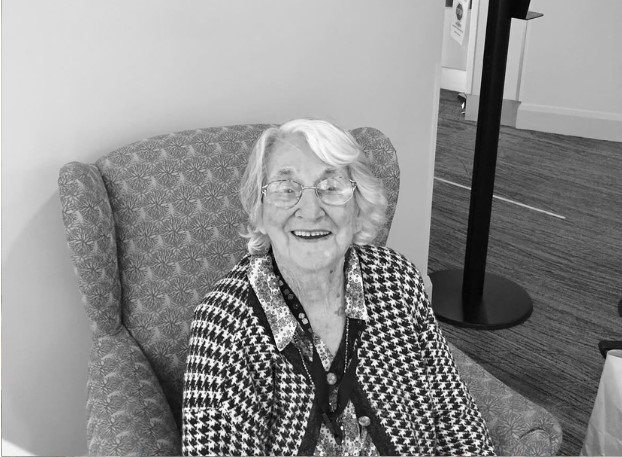Caring for older people in hot weather
- 20 Feb 2024

As the mercury rises and summer heat waves become more frequent, it’s crucial to pay special attention the well-being of our older population. Frail elderly people are particularly vulnerable to extreme temperatures and proper care can make a significant difference in their health and safety.
Read on for some tips on how to keep cool in hot weather.
Stay hydrated
One of the most critical aspects of caring for older people during hot weather is ensuring proper hydration. Dehydration can lead to serious health complications, so encourage seniors to drink plenty of water. Remind them to keep sipping water throughout the day, even if they don’t feel thirsty. Avoid caffeinated or alcoholic beverages which can worsen dehydration. Consider offering water-based fruits as snacks, for example, watermelon, cucumber and strawberries.
Stay cool
Maintain a cool living environment. Consider air conditioning (and make sure the unit is functioning correctly). Fans can also help circulate air and provide relief.
Use a cool, wet cloth to wipe arms and necks. Soaking feet in a bowl of cool water can also help regulate body temperature. Consider a trip to an air-conditioned venue, such as shopping centres, libraries and movie theatres, or contact your local council for information about Seniors Centres in your area.
Dress appropriately
Choose lightweight, breathable clothing made from natural fabrics. Light colours help reflect sunlight and keep the body cooler. Encourage seniors to wear wide-brimmed hats and sunglasses when outdoors.
Regular check-ins
Older people living alone are at higher risk, especially if they lack frequent contact with others. Regular check-ins by family, friends or care givers are essential. Ensure they have access to a phone or emergency alert system.
Recognise signs of heat-related illness
The signs of heat exhaustion and heat stroke include:
- Excessive sweating
- Weakness and fatigue
- Dizziness
- Confusion
- Nausea
Call triple zero (if living in Australia) in case of a medical emergency requiring ambulance support.
For non-life-threatening situations, Victorian residents can contact Nurse-On-Call for free professional health advice over the phone. Call 1300 60 60 24 to speak with a registered nurse about health-related questions and concerns. This service is available 24 hours a day, 7 days a week.
Limit outdoor activities during peak heat
Encourage seniors to stay indoors during the hottest part of the day (usually between 10am and 4pm). If they do need to go outside, encourage them to seek shade and take regular breaks from physical activity.
Protect with sunscreen
Sunscreen isn’t just for days at the beach. Older adults should apply sunscreen with an SPF of at least 30 before going outside. Sunburn can exacerbate heat-related stress.
Medication awareness
Certain medications can affect how the body responds to heat. Some diuretics, sedatives, tranquilisers and heart and high blood pressure medicines can make it hard for the body to cool itself on hot days. People on these medications may require more frequent check-ins to ensure they are staying cool in the heat.
Remind seniors to take their medication as prescribed and store them appropriately, away from the heat to avoid degradation.
Remember, extreme heat can lead to hospitalisation and even death for older individuals. By following these guidelines, we can help keep our seniors safe and comfortable during hot weather.
Community news
-

How to talk to a loved one about moving into aged care
One of the most challenging conversations we may have with our loved one is about whether it’s time to consider moving into residential aged care. Whether it’s a parent, grandparent, or partner, the topic can stir feelings of resistance and guilt. But when approached with empathy, patience and deep respect for the individual’s wishes, this conversation can become a meaningful step toward greater safety, comfort and connection.
- 18 Feb 2026
-

Hawthorn stars bring footy fun to Abbey Gardens
There was no mistaking the colours at Abbey Gardens Residential Aged Care Community in Warragul this week – brown and gold as far as the eye could see. Residents and staff donned their finest Hawthorn Football Club gear as players and support staff arrived for a visit, chatting with residents, signing autographs and bringing plenty of footy fun.
- 18 Feb 2026
-

Dressmaker, traveller, Bulldogs fan and volunteer – Thelma turns 100!
Thelma Powell, beloved resident and former volunteer at Westhaven, turned 100 on 9th February 2026 with balloons, party hats, and cake! Surrounded by her family, care team, the local MP, and Mayor, as well as a representative from her beloved footy team, the Bulldogs, it was a day to remember.
- 13 Feb 2026
